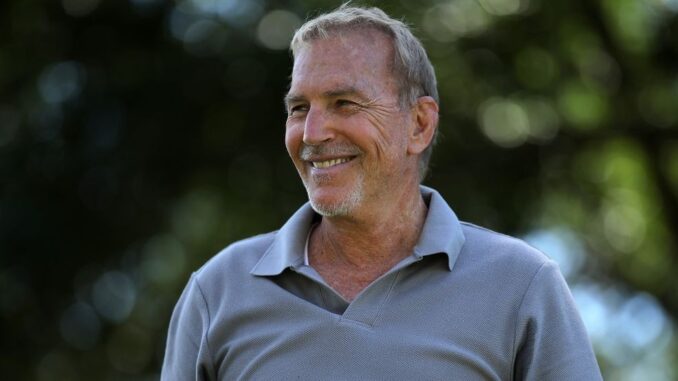
The Silence, The Roar, and the Shifting Sands of the Yellowstone Frontier
The vast, rugged landscapes of Montana, painted across our screens by Yellowstone, have always been more than just a backdrop; they are a character, a metaphor for the untamed spirit of the American West. And at the heart of this modern epic, standing as unyielding and iconic as the Tetons themselves, has been Kevin Costner’s John Dutton. His craggy face, often etched with a silent fury or a profound weariness, became synonymous with the show’s very soul: the fight for land, legacy, and a way of life under siege.
For months, as whispers turned into a cacophony of speculation, a different kind of silence settled over the Yellowstone faithful: Kevin Costner’s. It was a silence louder than any declaration, a void that grew more palpable with each passing week, feeding the anxious hum of fan forums and entertainment news cycles. Would the patriarch return? Could the empire he built, both on screen and off, survive his absence? This was not merely the absence of an actor from a set; it was the perceived abandonment of a king from his throne, a cowboy from his range.
When Costner finally broke that silence, it wasn't with a triumphant return or a definitive "I'm back." Instead, it was a nuanced, almost melancholy explanation, a reflection of the complex interplay between artistic ambition, professional obligations, and the relentless machinery of Hollywood. His breaking of silence was less a roar and more a sigh, acknowledging the very real, very human reasons for the chasm that had opened between him and the record-breaking series.
To understand the weight of this moment, one must first grasp the depth of Costner’s immersion in the role. John Dutton wasn't just a part he played; for many, he was John Dutton. Costner’s own enduring image as the quintessential American hero, forged in cinematic gold from Dances with Wolves to Open Range, lent an authentic gravitas to the character. He wasn't simply reading lines; he was embodying a dying breed, a keeper of the flame, a man battling the relentless tides of progress and greed. His silence, therefore, felt like Dutton's own stoic refusal to explain himself, a quiet withdrawal that spoke volumes about the unresolved tensions behind the scenes.
When Costner did speak, often citing his passion project Horizon – a multi-part Western saga of his own creation – as the primary reason for scheduling conflicts, it illuminated a fundamental truth about creative artists at his level. For an actor of Costner’s stature, the allure of a role, however iconic, can sometimes yield to the profound pull of personal vision. Yellowstone was a golden cage, perhaps, but Horizon was his own untamed wilderness, a chance to be not just the star, but the architect of an entire world. His words, though sometimes tinged with regret, underscored the sacrifice inherent in such ambition: to build something new, one must sometimes walk away from something beloved.
The reverberations of Costner breaking his silence are multifaceted. For Yellowstone, it necessitates a reckoning. Can the show truly thrive without its central star, the patriarch whose very presence defined its narrative gravitational pull? Taylor Sheridan, the show’s creator, faces the unenviable task of navigating a continuation that must feel both authentic to the world he built and compelling enough to sustain an audience accustomed to Dutton’s indomitable will. It’s a challenge akin to rerouting a mighty river: possible, but never without significant disruption to the surrounding landscape.
For Costner himself, breaking silence on Yellowstone also meant embracing the frontier of his own future. Stepping away from a guaranteed juggernaut for a passion project is a bold, high-stakes gamble. It speaks to an artistic integrity that prioritizes personal narrative over commercial certainty. It’s a move reminiscent of the very characters he often portrays: forging a path against the odds, driven by an inner compass rather than external pressures.
Ultimately, Kevin Costner’s breaking of silence on his Yellowstone future is more than just a news item. It’s an illustrative moment in the ever-evolving narrative of Hollywood, a poignant reminder that even the most enduring partnerships can unravel under the weight of conflicting ambitions. It underscores the delicate balance between the art and the commerce, the personal and the professional. The Montana ranch, once defined by John Dutton’s unwavering presence, will now shift, adapting to a new horizon. And like the wild, beautiful country it portrays, Yellowstone will continue, changed yet enduring, a testament to both the power of its own story and the indelible mark left by the cowboy king who, for a time, ruled its cinematic range.
